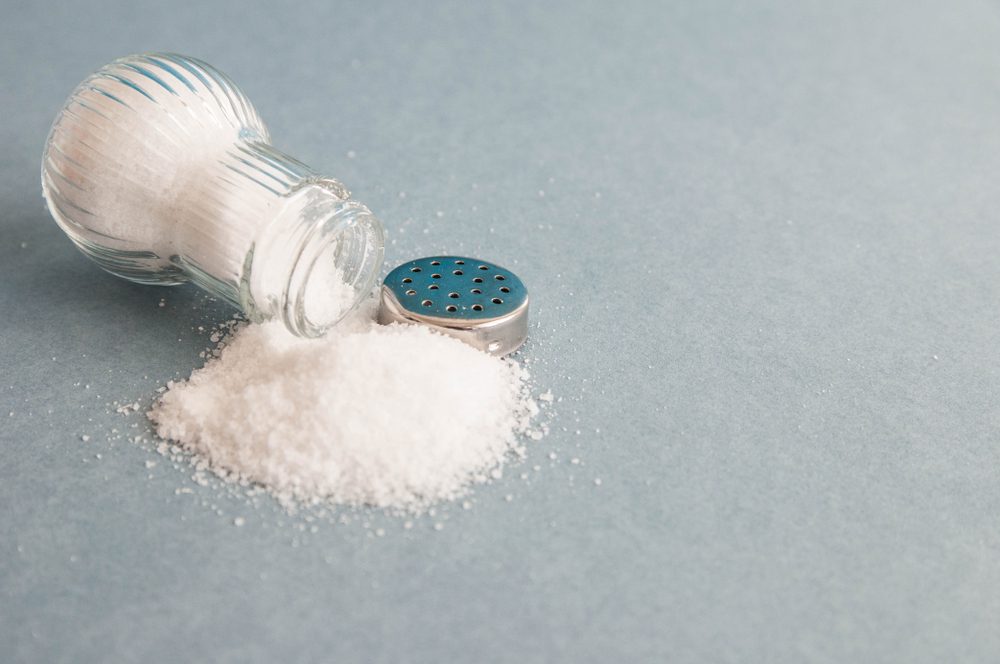Remember those times when you had endless energy, could eat whatever you wanted (or nothing at all) and feel amazing every day?
As good as they might have been, the years of eating ten doughnuts in a row are gone forever. Now that you’re over 50, everything you eat has a much bigger impact – and the same goes for physical activity. If you’re suffering from any other underlying conditions too, staying in good shape is crucial.
Of course, certain rules apply to all of us regardless of age: eating all major food groups, consuming small quantities more often and creating a balanced meal schedule. However, as you age many nutritional properties are changing and taking them into account can expand your lifespan while keeping disease at bay.
Today, we’ll have a look at 5 expert-recommended changes you can make to live a long, happy life once you turn 50.

1. Protect your bones
Of all the organs that will be affected by age over time, your bones require special attention on your part. That’s because, once you age, every bone in your body weakens because it starts losing minerals; since your joints lose their flexibility too, you’ll be more likely to experience pain and discomfort.
Many specialists recommend improving your diet with a supplement rich in vitamin D and calcium. Not only can these two nutrients improve your bone structure, but maintaining them within healthy levels can prevent osteoporosis.
In fact, the National Osteoporosis Foundation highly encourages increasing the daily intake of calcium and vitamin D through dietary changes.
Some of the best sources of calcium, for example, are:
- Salmon and trout
- Soybeans
- Spinach
- Kale
You can also get more vitamin D from foods such as:
- Salmon, tuna and mackerel
- Dairy products (cheese)
- Egg yolks
Additionally, you can find many foods fortified with both vitamins, some of the most common being cereal, juice or oatmeal. Make sure to read the label of each product to check the exact quantity of vitamins it offers. Ideally, adults over 50 should get at least 600 IU of vitamin D and more than 1,000 mg of calcium per day.
If your doctor suspects a risk for developing osteoporosis, they might recommend supplements to further increase your daily calcium and vitamin D intake.
2. Boost your energy levels
Regardless if you’ve been working out your entire life or you’ve been more of a sedentary person, you’ve probably noticed that your energy levels have been changing recently. Now, it takes more effort to perform certain exercises, clean the house or even run daily errands.
Unfortunately, this is completely normal and unavoidable to some extent. However, if you’re secretly suffering from a vitamin B12 deficiency, for example, even the simplest tasks may feel physically overwhelming. This is why it’s crucial to get annual checkups after 50, so you can detect any abnormalities and correct them before the situation worsens.
Don’t forget to also eat foods packed with vitamin B12, such as mackerel, beef liver, yogurt, and red meat.
Many breakfast cereals are fortified with vitamin B12 as well, although we highly recommend reading the label to check their other health benefits (added sugar or artificial flavors are a no-no).

3. Cut down on salt
High blood pressure is one of the most common illnesses in our country – and many people affected are over 50.
There are many causes for this diagnosis, but one of the most prevalent ones regards your diet – more precisely, your daily salt intake. Since most foods on the market (like processed meals or snacks) are overloaded with salt, it’s best to avoid eating them as much as possible to keep your risk of hypertension low.
Aside from fast-food meals which definitely contain way more sugar than recommended, it’s best to choose sodium-free alternatives to sauces and packaged foods (which are also usually high in salt).
As for the meals you’re cooking by yourself, you can try increasing the quantity of other seasoning ingredients to provide extra flavor instead of salt. For example, garlic and onion powders, pepper, paprika and fresh herbs can bring out the flavor in your favorite foods in a much healthier way. In fact, once you discover how tasteful your food can get due to spices, there’s no way back. Personally, I’m obsessed with turmeric powder!
4. Strengthen your immunity
Of all the pieces of advice listed here, this is perhaps the most important – especially after the COVID-19 pandemic. Immunity is basically your shield against bacteria, germs, and viruses. As a famous phrase says, “Prevention is better than cure,” so it’s important to make sure your body’s immunity is always ready to fight toxins and germs.
Inflammation is much more common in people over 50 and so are rheumatoid arthritis, Alzheimer’s disease, diabetes, heart disease or even cancer. But why are these illnesses so commonly encountered in the elderly population?
Well, the main reason is that aging causes your immune system to slow down and therefore become less effective. The soldiers that have been guarding your body against viruses, bacteria and other threats of your life are simply burned out and can’t destroy outside threats as usual.
However, there are many natural ways you can help your immune system stay strong and keep you healthy in the long run. One of the best methods involves eating certain foods at each meal.
According to specialists, up to 50% of your plate should have fruits and vegetables – yes, at every single meal. Your body desperately needs such ingredients because they offer valuable vitamins, minerals and antioxidants which translate into a strong immune system.
As for meat, it’s best to stick to options high in protein such as fatty fish or lean poultry (boneless, skinless chicken or turkey breast is always a good option).
If you’re a bread enthusiast, switching to bread made with whole grains can make a huge difference in reducing your risk of type 2 diabetes, as well as heart disease and other common diseases whose risk increases with age.

5. Keep your skin healthy
If there’s one hint to somebody’s age, it’s definitely their skin. As we age, the largest organ in our body becomes more fragile and thinner; however, if you notice that your skin is unusually fragile and delicate, it might actually have something to do with your diet.
Getting a proper intake of vitamins C and E is crucial for healthy, strong skin that maintains its elasticity over time. Some of the best natural sources of vitamin E are avocado, spinach, sunflower seeds, nuts like almonds, kiwi, trout, parsley, and papaya. As for vitamin C, here are some more foods that help you increase your daily intake (aside from the ones mentioned earlier on): bell peppers, berries, broccoli, kale, tomatoes, kiwi, papaya, and obviously citrus.
Enriching your daily meals with these ingredients can make a huge positive difference in how your skin looks and feels. Don’t forget that healthy, good-looking skin comes from within. If you eat plenty of foods packed with nutrients, your skin will thank you later.
Note that staying hydrated is equally important! Drinking enough liquids daily helps your skin recover faster, as well as improves its elasticity.
You may also want to read 11 Healthier Sugar Alternatives You Should Be Using.













